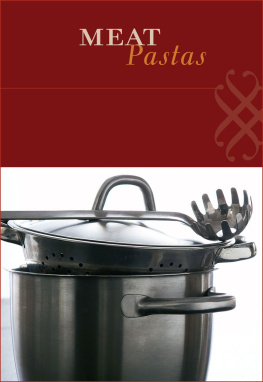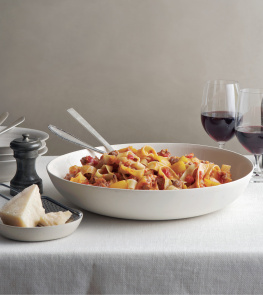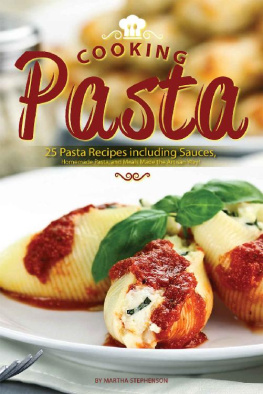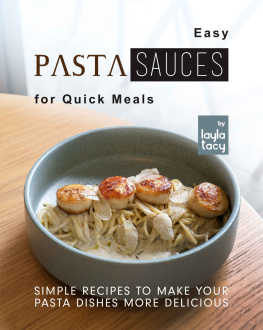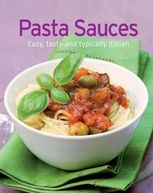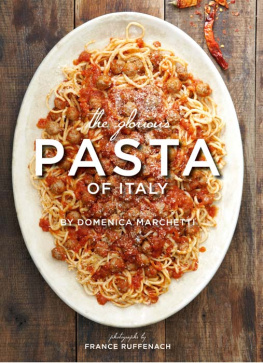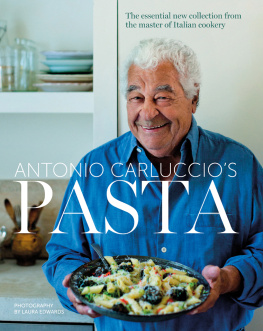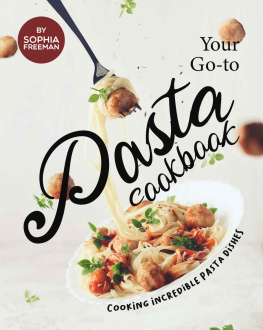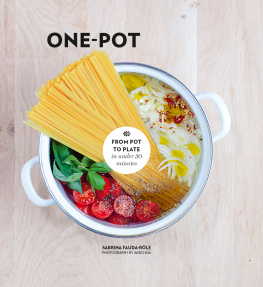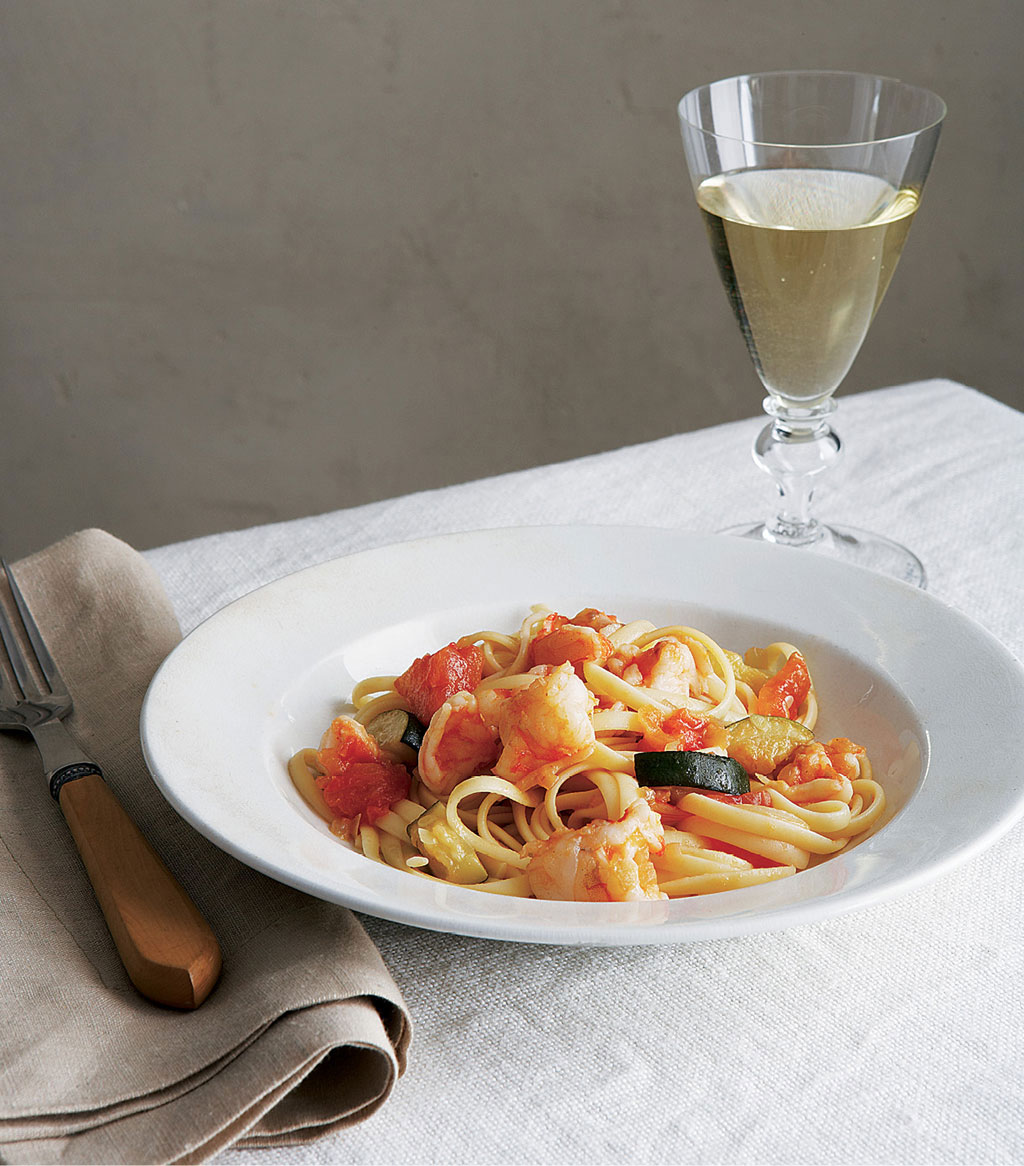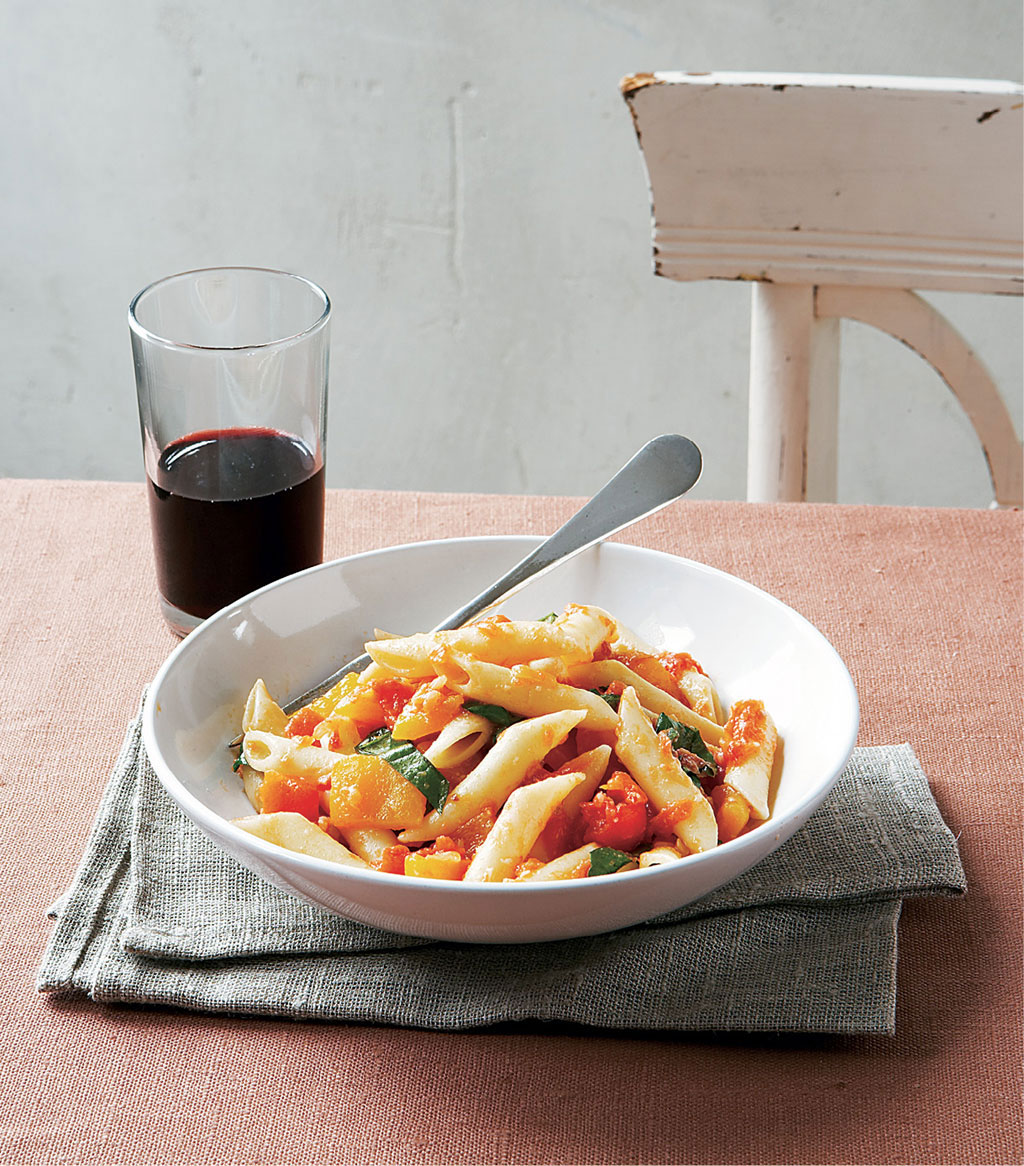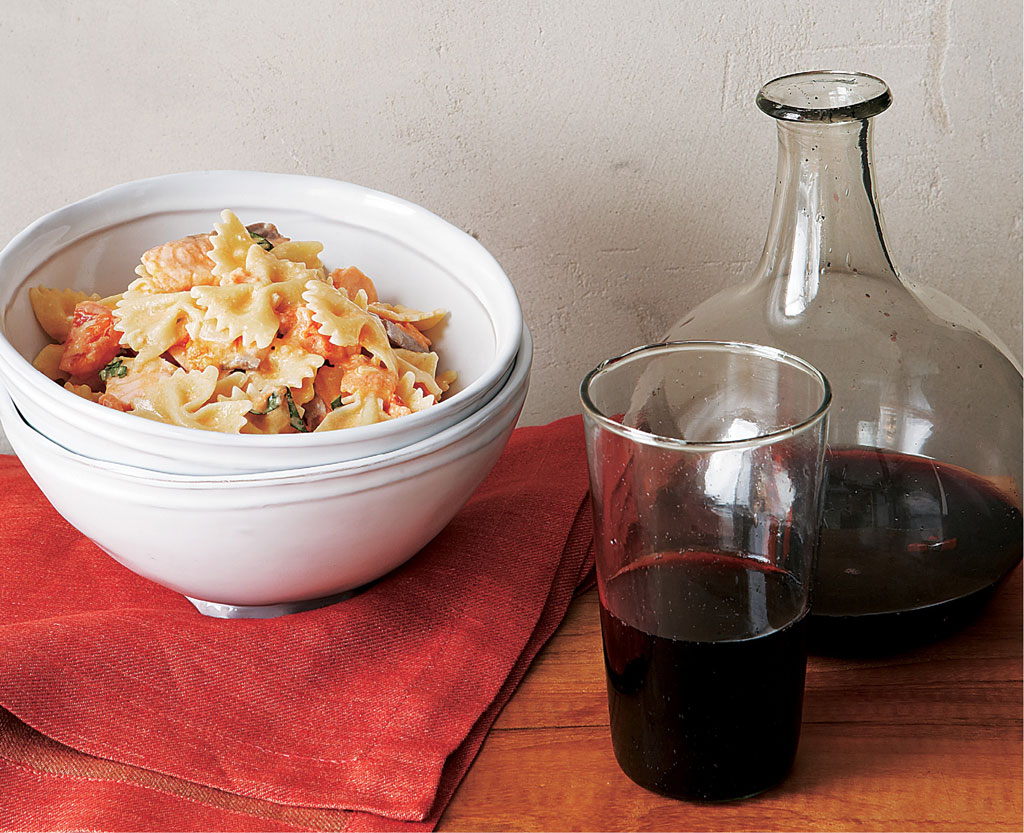For Michela , my little pasta queen
Published in 2009 by Stewart, Tabori & Chang
An imprint of Harry N. Abrams, Inc.
Text copyright 2009 by Giuliano Hazan
Photographs copyright 2009 by Joseph De Leo
All rights reserved. No portion of this book may be reproduced, stored in a retrieval system, or transmitted in any form or by any means, mechanical, electronic, photocopying, recording, or otherwise, without written permission from the publisher.
Library of Congress Cataloging-in-Publication Data:
Hazan, Giuliano.
Giuliano Hazans Thirty Minute Pasta.
p. cm.
Includes bibliographical references and index.
ISBN 978-1-4532-8632-6
1. Cookery (Pasta) 2. Quick and easy cookery. 3. Cookery, Italian. I. Title.
TX809.M17H32 2009
644.755--dc22 2008053114
Editor: Luisa Weiss
Designer: Susi Oberhelman
Production Manager: Tina Cameron

115 West 18th Street
New York, NY 10011
www.hnabooks.com
Contents
P a s t a S o up s
V egetarian P a s t a s
S e a fo o d P a s t a s

M eat P as t a s

Introduction
In our increasingly busy lives, there seems to be less and less time to cookyet more and more people are realizing the importance of eating at home, both as a way to strengthen family bonds and as a healthier, more economical alternative to eating out. This creates a yearning to have quality meals prepared at home. The Mediterranean diet of low-fat carbohydrates such as pasta and lots of fresh vegetables and fruits, along with an active lifestyle, has been proven to promote a long and healthy life. Fads may come and go, but the appeal of pasta has endured even the Atkins diet craze. Taking the time to prepare a home-cooked meal may seem like a luxury, but in fact it doesnt need to take longer than going out or even getting take-out. Many of the pasta sauces I prepare at home do not take much longer than boiling the water and cooking the pasta.
There are several myths surrounding the origins of pasta, the best known being that Marco Polo brought it back from China. There is the dubious assertion in Greek mythology that the god Vulcan invented a device that made strings of dough like spaghetti, but in fact Vulcan was a Roman god, not Greek. My favorite is a legend told by the Neapolitan storyteller Matilde Serao in her 1881 short-story compilation, Leggende Napoletane ( Neapolitan Legends ). According to this story, in 1220 there lived in Naples a magician by the name of Chico. He rarely came out of his top-floor apartment except for occasional trips to the market to buy various herbs and tomatoes. (Getting tomatoes was a pretty neat trick for Chico to pull offeverybody else in Europe had to wait another years, until well after the discovery of America. But he was a magician, after all.) He spent his days in front of a large bubbly cauldron and his nights poring over ancient texts and manuscripts. After many years of trials and tribulations, he finally succeeded in creating something he knew would greatly contribute to the happiness of mankind. During all this time, Jovanella, the devious and opportunistic wife of one of the kings kitchen help, had been spying on his every move from her terrace, which gave her a view into Chicos apartment. One day she finally discovered Chicos secret. Jovanella ran to her husband and told him their troubles would be over and they would be rich if he did what she told him. What must I do? he asked her. Go tell the kings chef that I have discovered a new food so exquisite that it deserves to be tasted by His Majesty. Jovanellas husband spoke to the chef, who spoke to the butler, who spoke to a count, who, after much deliberation, spoke to the king. The king, who was getting rather bored with the food he had been eating, eagerly welcomed the opportunity to try something different. So Jovanella was admitted to the royal kitchens and proceeded to prepare what she had seen the magician create. She combined flour, water, and eggs to form a dough that she then painstakingly pressed out until it was as thin as parchment. She cut it into strips that she left out to dry. She then cooked onions, meat, and tomatoes over very low heat for a long time until they formed a sauce. When it was time to eat, she cooked the pasta in boiling water, drained it, and tossed it with the sauce and the famous cheese from Parma. The king was so impressed by what Jovenella had made that he asked her how she had managed to come up with such a remarkable invention. She answered that an angel had revealed it to her in a dream. The king ordered that she be rewarded handsomely for having made such an important contribution to the happiness of mankind. Soon every noble in the area offered Jovanella rich rewards so their cooks could learn how to make her incredible recipe. One day Chico was walking down the street and smelled the aroma of his wonderful invention coming from one of the houses. Incredulous, he walked in and asked what was being prepared. He was told of a wonderful new food that an angel had revealed to a woman in her sleep. It was such a blow to him that he ran home, packed all his things, and disappearedno one heard from him again.
The fact is that pasta has been around for a very long time, and not just in Italy. The discovery of a well-preserved sealed earthenware bowl of millet noodles in an archeological site in northwestern China indicates that the Chinese were already eating noodles , years ago. In fact, its likely that since humans began cultivating wheat , years ago, they have been making some kind of dough with it, whether it was cooked on hot stones or boiled. There is a reference to what could be pasta cooked by boiling in the Talmud, where it refers to itrium as a kind of boiled dough that was used in Palestine between the third and fifth centuries A.D. It is pretty much undisputed now that pasta existed in Italy before Marco Polo returned from China in , and its likely that it was introduced in Italy by the Arab invaders of Sicily. The word maccaruni means to make dough by force in Sicilian dialect. A small-scale industrial production of dried pasta in Trabia, a village outside of Palermo, is mentioned in an Arab geographers 1154 book, A Diversion for the Man Longing to Travel to Far-Off Places . The first documented recipe for pasta seems to be in De arte Coquinaria per vermicelli e maccaroni siciliani ( The art of cooking Sicilian vermicelli and macaroni ), written in the eleventh century by Martino Corno, chef to the matriarch of Aquileia.

